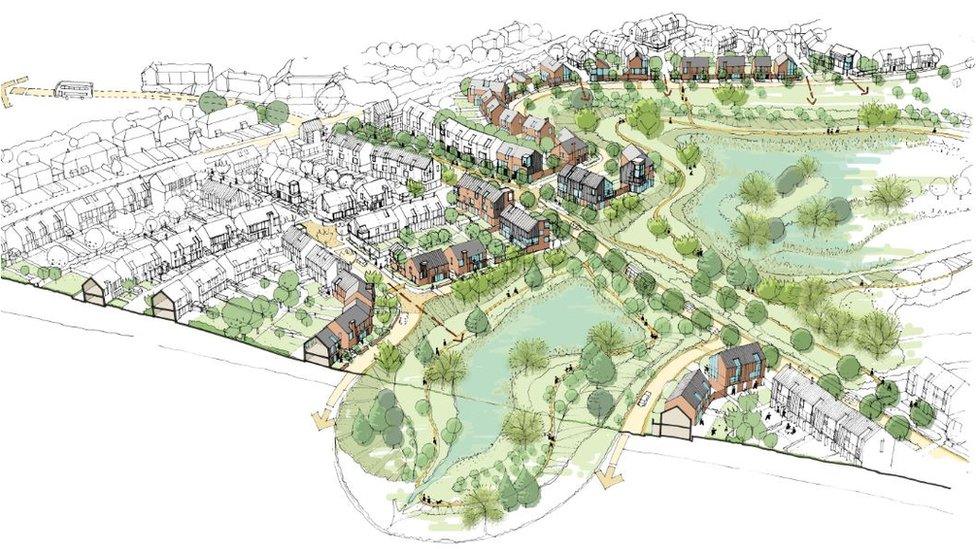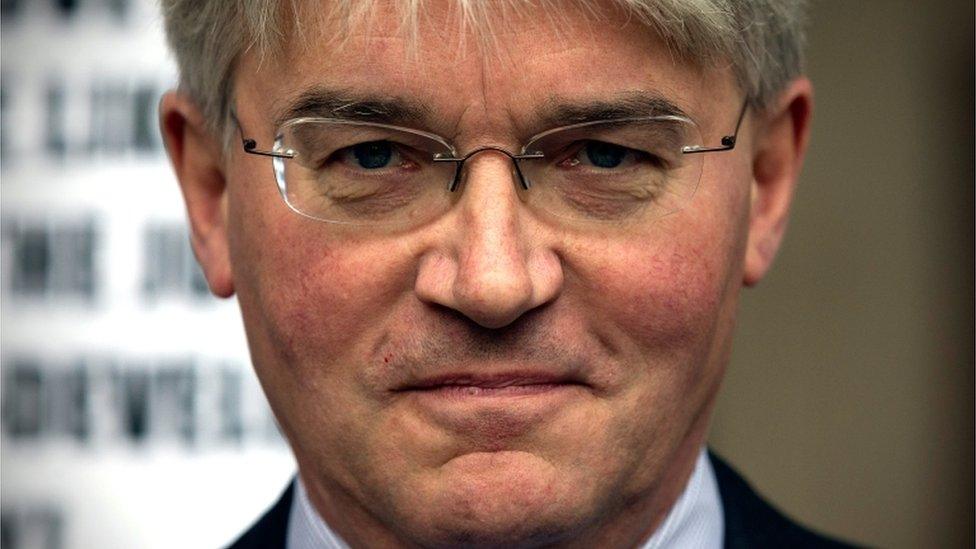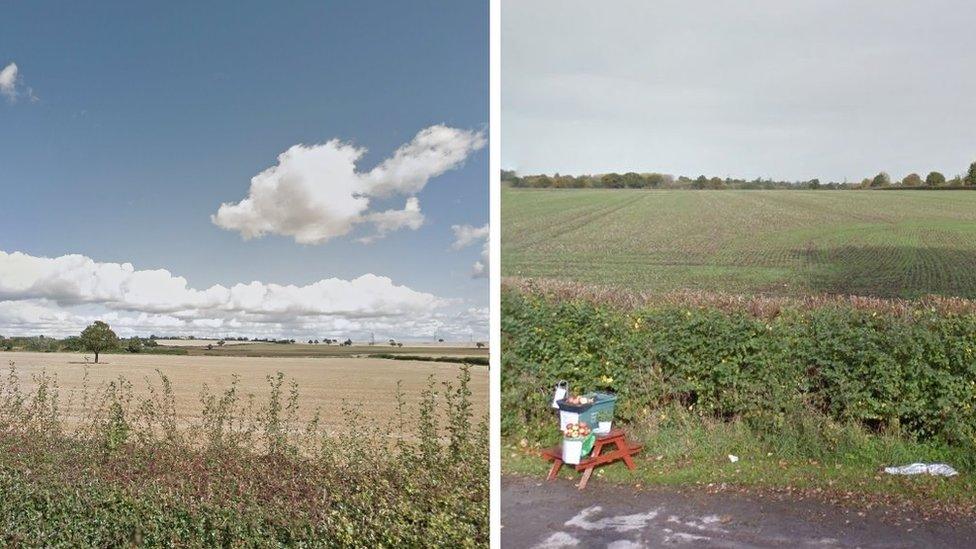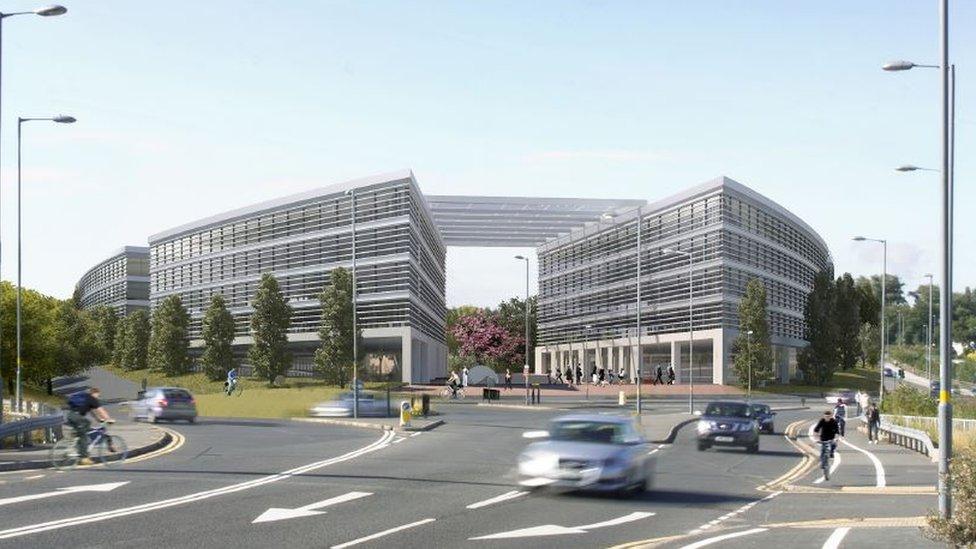Sutton Coldfield greenbelt homes: MP calls for debate
- Published

A sketch of what the Langley Hills development could look like
Former chief whip Andrew Mitchell is demanding a House of Commons debate over plans to build 6,000 homes on greenbelt land in his constituency.
Ministers have lifted a block on the Birmingham Development Plan (BDP), external, which will see 50,000 new homes built.
The plan was approved in April, but put on hold after opposition to greenbelt development in Sutton Coldfield.
Housing Minister Gavin Barwell has now said the housing need was "exceptional" and the plan should be adopted.

Andrew Mitchell MP has called for a debate in the House of Commons on the issue
Mr Mitchell told the BBC Radio 4's Today programme earlier: "This is the fault of the Labour council, my constituents are frozen out from this process and not one iota of notice has been taken of us."
The BDP includes 51,100 homes, 300 hectares (740 acres) of employment land, 350,000 sq m of retail floor space and 745,000 sqm of office space across the city.
Fields near the Sutton Coldfield bypass at Peddimore and Langley will have 6,000 homes and 71 hectares (175 acres) of business built on them.
Birmingham City Council leader John Clancy welcomed the decision saying the government had "recognised the need to release greenbelt to help meet our housing and employment land needs".

Greenbelt land at Peddimore, left, and Langley, either side of the Sutton Coldfield bypass, will be built on
As part of the plans, there will also be six economic zones and 26 enterprise zones to grow existing business and attract new investors.

Analysis: BBC Political Correspondent Ross Hawkins
Yesterday, Conservative ministers did something that was pretty surprising. They gave the go-ahead to the building of 6,000 homes on the greenbelt, in the constituency of a rather prominent Conservative MP in Sutton Coldfield.
Andrew Mitchell, the local MP, blames the Labour council. It is fair to say he is generally not a happy man, not one iota of notice taken of his constituents. He'll seek a debate in Parliament.
But here is the thing that really matters - on the same day that happened, Sajid Javid, the communities secretary, gave a speech extolling what a good decision this was, saying how much he would back councils that made similar decisions. We are coming up to a housing White Paper and you can read something significant into all of this.
I understand that one of the ideas that ministers are considering in that White Paper is changes to make sure that councils don't set the level of houses they say they need in their area artificially low, so they can say "look, we don't need to even look at or consider the greenbelt" and there are concerns that may have been happening from some.


The Life Sciences Campus around the Queen Elizabeth Hospital will be one of six economic zones across the city
Research has shown 89,000 new homes are required over the next 15 years to address the housing shortage and meet the needs of Birmingham's growing population.
The plan is expected to be formally adopted by the city council early next year.
- Published21 April 2016
